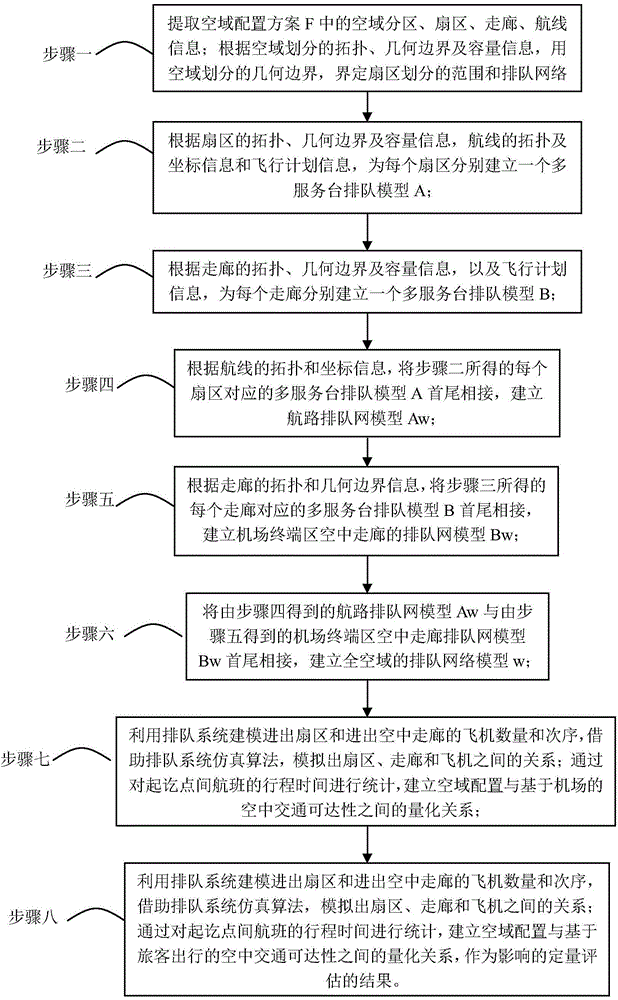Method for quantitatively evaluating influence of airspace allocation on air traffic accessibility
A technology for air traffic and quantitative assessment, applied in the directions of instruments, data processing applications, resources, etc., can solve the problems of low travel efficiency of travelers, inability to determine the impact of airspace configuration air traffic accessibility, and low passenger capacity of airlines. The effect of improving travel efficiency, reducing the number of safety hazards, and improving passenger capacity
- Summary
- Abstract
- Description
- Claims
- Application Information
AI Technical Summary
Problems solved by technology
Method used
Image
Examples
specific Embodiment approach 1
[0019] Specific implementation mode one: combine figure 1 Describe this implementation mode, the method for quantitatively evaluating airspace configuration impact on air traffic accessibility, comprises the following steps:
[0020] Step 1: Extract the airspace division, sector, corridor, and route information in the airspace configuration plan F; according to the topology, geometric boundary and capacity information of the airspace division, use the geometric boundary of the airspace division to define the scope of the sector division and the queuing network Scope; airspace configuration includes airspace subdivision, sector division, setting of air corridors and routing arrangements, etc.
[0021] Step 2: According to the topology, geometric boundary and capacity information of the sector, the topology and coordinate information of the flight line and the flight plan information, a multi-server queuing model A is established for each sector;
[0022] Step 3: According to t...
specific Embodiment approach 2
[0028] Specific embodiment two: the method for setting up a multi-service station model for each sector in the step two described in this embodiment is: for each flight in and out of the sector corresponds to one service station, the flight of the flight in the sector The time corresponds to the service time of the service desk, and the sector capacity is taken as the upper limit of the number of service desks corresponding to each sector, and a multi-service desk queuing model A is established.
[0029] Other steps are the same as in the first embodiment.
specific Embodiment approach 3
[0030] Specific embodiment three: the method for setting up a model of a multi-service desk for each corridor in step 3 of this embodiment is: for each flight in and out of the corridor corresponds to a service desk, and the flight time of the flight in the corridor corresponds to the service of the service desk Time, build a multi-server queuing model B.
[0031] Other steps are the same as those in Embodiments 1 to 2.
PUM
 Login to View More
Login to View More Abstract
Description
Claims
Application Information
 Login to View More
Login to View More - R&D
- Intellectual Property
- Life Sciences
- Materials
- Tech Scout
- Unparalleled Data Quality
- Higher Quality Content
- 60% Fewer Hallucinations
Browse by: Latest US Patents, China's latest patents, Technical Efficacy Thesaurus, Application Domain, Technology Topic, Popular Technical Reports.
© 2025 PatSnap. All rights reserved.Legal|Privacy policy|Modern Slavery Act Transparency Statement|Sitemap|About US| Contact US: help@patsnap.com

